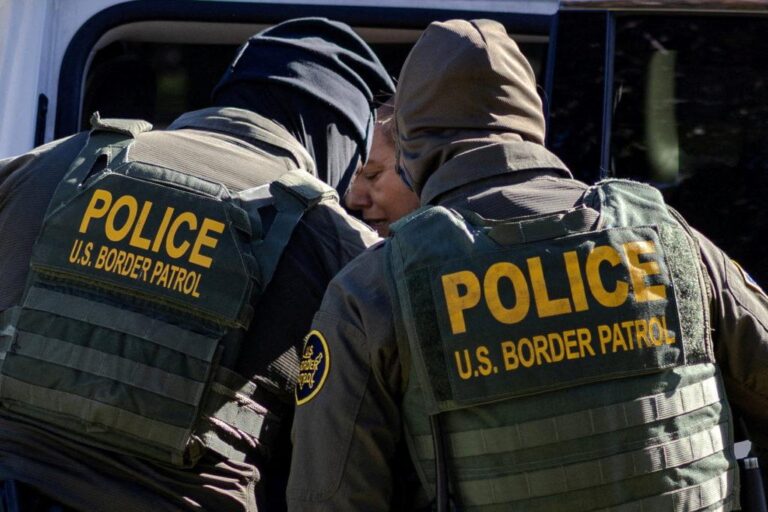Heightened Federal Immigration Enforcement Initiatives in the San Francisco Bay Area
The San Francisco Bay Area is witnessing a marked increase in federal immigration enforcement activities as agents from various federal agencies mobilize to identify and detain individuals suspected of breaching immigration laws. This operation, announced by the Department of Homeland Security, represents one of the most robust federal crackdowns in recent years within a region traditionally recognized for its sanctuary city policies and vibrant immigrant population. The coordinated effort aims to curtail protections afforded by local jurisdictions and reinforce federal immigration statutes.
The deployment involves personnel from agencies such as Immigration and Customs Enforcement (ICE), Customs and Border Protection (CBP), and the Federal Bureau of Investigation (FBI), working in unison to address what officials describe as pressing concerns related to illegal immigration and public safety. The federal focus is primarily on specific groups, including:
- Individuals with criminal records
- Recent entrants crossing the border unlawfully
- Persons subject to prior deportation orders
| Agency | Primary Function | Number of Agents Deployed |
|---|---|---|
| ICE | Apprehension and removal operations | Over 200 |
| CBP | Border enforcement and surveillance | Approximately 150 |
| FBI | Investigation of criminal activities linked to immigration violations | 50 |
Community Backlash and Judicial Opposition to Federal Immigration Actions
In response to the federal crackdown, numerous community organizations and local officials across the Bay Area have mobilized to protect immigrant residents. Grassroots groups have organized protests and workshops to inform undocumented individuals about their legal rights and available support services. City leaders have expressed apprehension about the potential erosion of trust between immigrant communities and law enforcement, warning that such enforcement could lead to social fragmentation.
Concurrently, civil rights attorneys and advocacy groups have initiated legal challenges aimed at halting or limiting the scope of the federal operation. Several lawsuits are currently pending in federal courts, contesting the crackdown on grounds including:
- Alleged infringements on due process and Fourth Amendment rights against unlawful searches and seizures
- Claims of discriminatory enforcement disproportionately affecting certain ethnic groups
- Concerns over inadequate coordination with local authorities, raising questions about jurisdictional overreach
| Legal Action | Current Status | Lead Plaintiff |
|---|---|---|
| Motion for injunction against detentions | Awaiting decision | Bay Area Immigrant Defense Alliance |
| Challenge to warrantless arrests | Filed | Northern California ACLU |
| Discrimination lawsuit alleging racial profiling | Ongoing | Immigrant Rights Network of the Bay |
Consequences for Immigrant Populations and Economic Implications in the Bay Area
The intensified immigration enforcement is anticipated to cause considerable upheaval within the Bay Area’s immigrant communities. Advocates warn that fear of detention and deportation may discourage undocumented residents from accessing vital services such as healthcare, education, and legal assistance, thereby deepening social isolation. This atmosphere of apprehension risks fracturing community bonds and pushing vulnerable populations further into invisibility.
From an economic standpoint, industries heavily dependent on immigrant labor—including technology support services, food production, and hospitality—could experience workforce shortages. Recent studies estimate that immigrant workers constitute nearly 40% of the labor force in these sectors within the Bay Area. Potential repercussions include:
- Reduced labor availability causing delays in project completion and increased operational expenses.
- Lower consumer spending due to decreased household incomes among immigrant families, impacting local businesses.
- Heightened uncertainty for small businesses employing undocumented workers, potentially leading to closures or downsizing.
| Industry | Projected Workforce Impact | Economic Ramifications |
|---|---|---|
| Technology Support Services | 30% Reduction in Staff | Delayed IT projects, increased outsourcing costs |
| Food Production | 20% Labor Deficit | Lower output, price inflation |
| Hospitality | 25% Staffing Shortages | Service interruptions, revenue decline |
Policy Recommendations for Balancing Enforcement with Human Rights Protections
Navigating the complex intersection of immigration enforcement and human rights requires policymakers to adopt nuanced strategies that uphold security without compromising dignity. Instituting transparent oversight frameworks is essential to ensure accountability and prevent potential abuses during enforcement operations. Independent review committees can serve as watchdogs, fostering public confidence.
Furthermore, fostering collaborative partnerships between federal agencies and local community leaders can facilitate culturally informed approaches that respect the unique needs of immigrant populations. Legal safeguards must be clearly articulated and enforced to protect migrants’ rights, minimizing unnecessary family separations and economic disruptions. Comprehensive training programs emphasizing cultural competence and ethical conduct for federal agents are critical to maintaining humane enforcement standards. The following table summarizes key policy actions and their anticipated benefits:
| Policy Area | Recommended Measure | Anticipated Benefit |
|---|---|---|
| Transparency | Establish independent oversight panels | Greater accountability and public trust |
| Community Collaboration | Engage local leaders in enforcement planning | Enhanced cooperation and reduced tensions |
| Legal Safeguards | Define and enforce migrant rights protections | Lower incidence of rights violations |
| Agent Education | Implement mandatory cultural sensitivity training | Respectful and ethical enforcement practices |
Final Thoughts
As federal authorities ramp up immigration enforcement in the San Francisco Bay Area, the region stands at a crossroads, balancing national security priorities with the imperative to protect immigrant communities and uphold human rights. This intensified operation, reflective of a broader national policy direction, is likely to provoke ongoing discussions about the best path forward. Stakeholders from all sectors will be closely observing the evolving situation, mindful of its profound social and economic implications.




